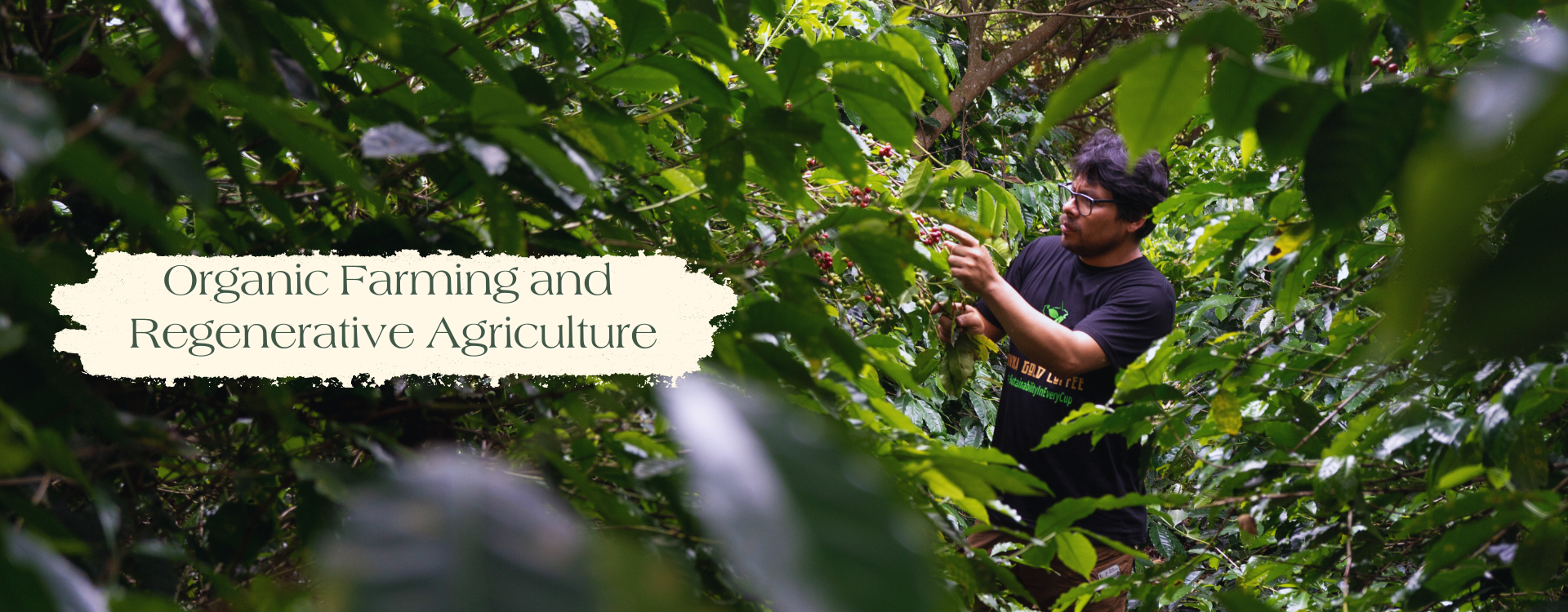
Organic Farming and Regenerative Agriculture
Selection of Organic Matter as Fertilizer
At our farms and those of our partners, we have a deep-rooted culture of selecting organic matter for use as fertilizer. We all have specific pits where we deposit a variety of organic waste, including coffee residues such as husks, fruit and vegetable scraps, weed waste, and guinea pig droppings, among others. These organic materials undergo a decomposition process that can last between 3 and 8 months, during which they turn into natural compost rich in essential nutrients for the proper growth and development of coffee trees.
Benefits of Organic Compost
The use of organic compost has numerous benefits for the soil and plants. In addition to providing essential nutrients such as nitrogen, phosphorus, and potassium, compost improves soil structure, increases its water retention capacity, and promotes beneficial microbial activity. This results in healthier and more fertile soil, which in turn contributes to vigorous growth and increased plant resistance to diseases and pests.
Focus on Soil Health
We maintain a focus on soil health, understanding that healthy soil is fundamental to the long-term success of our operations. In addition to the use of organic compost, we practice crop rotation and soil cover with organic materials such as straw or dry leaves to protect it from erosion and promote beneficial biological activity.
List of Pests and Integrated Pest Management Approach
Among the most common pests we face on our farms are coffee berry borers, rust, coffee borer beetles, leafcutter ants, and coffee nematodes. To control these pests, we implement an integrated pest management (IPM) approach that combines various methods:
- Biological control: We introduce beneficial organisms such as parasitoid wasps and entomopathogenic fungi to control pest populations naturally.
- Cultural control: We implement agricultural practices such as proper pruning, removal of diseased fruits, and weed cleaning to reduce pest incidence.
- Chemical control: We use organic phytosanitary products based on plant extracts and microorganisms to control pests safely and environmentally friendly.
- Regular monitoring: We periodically inspect crops to detect early signs of infestation and take preventive measures before pest populations become significant.
- Promotion of biodiversity: We maintain natural areas within and around our farms to promote the presence of natural enemies of pests and improve the overall health of the ecosystem.
These practices allow us to maintain a natural balance on our farms, reduce dependence on chemical products, and promote the health of both crops and the surrounding environment.




